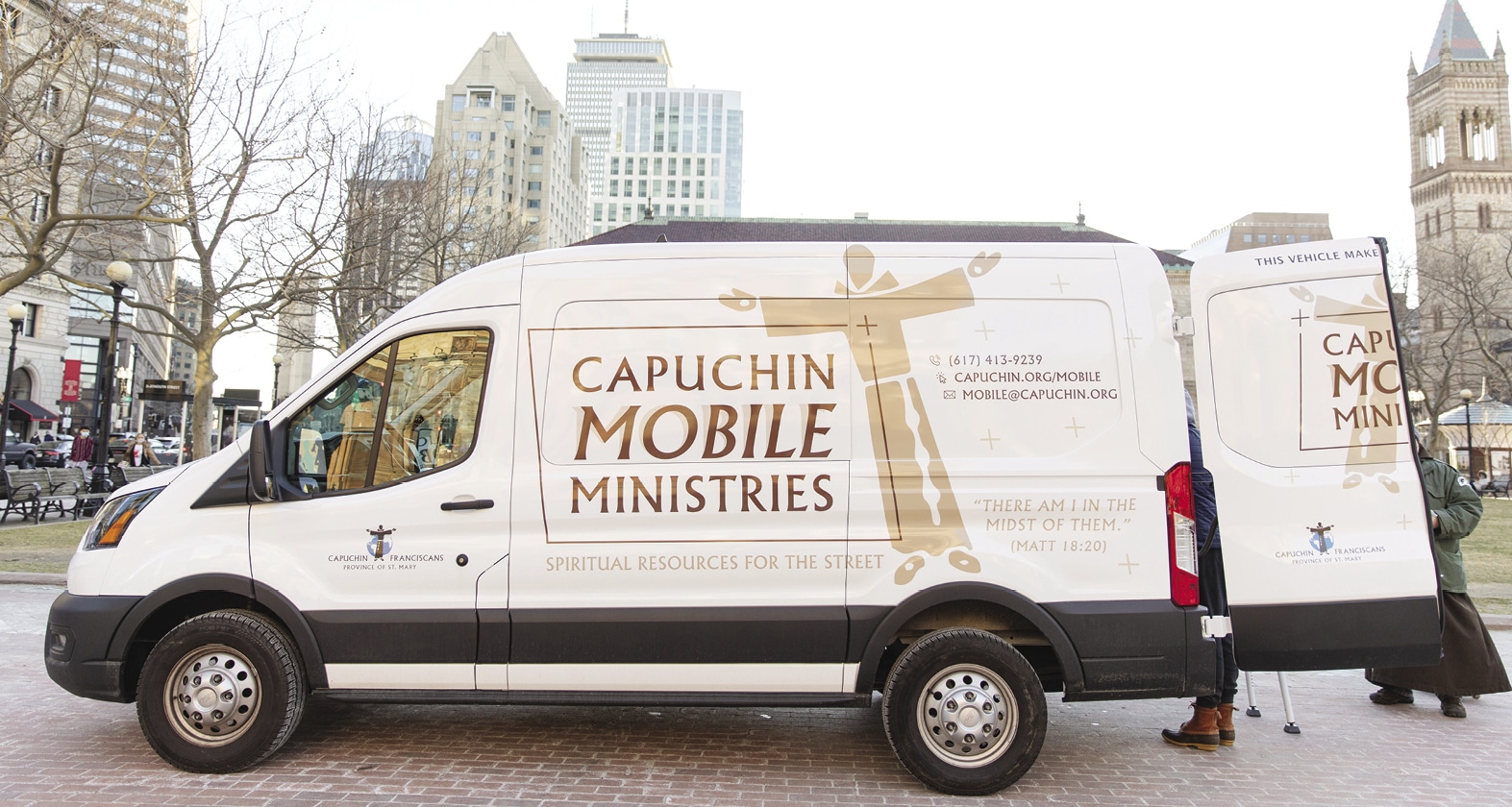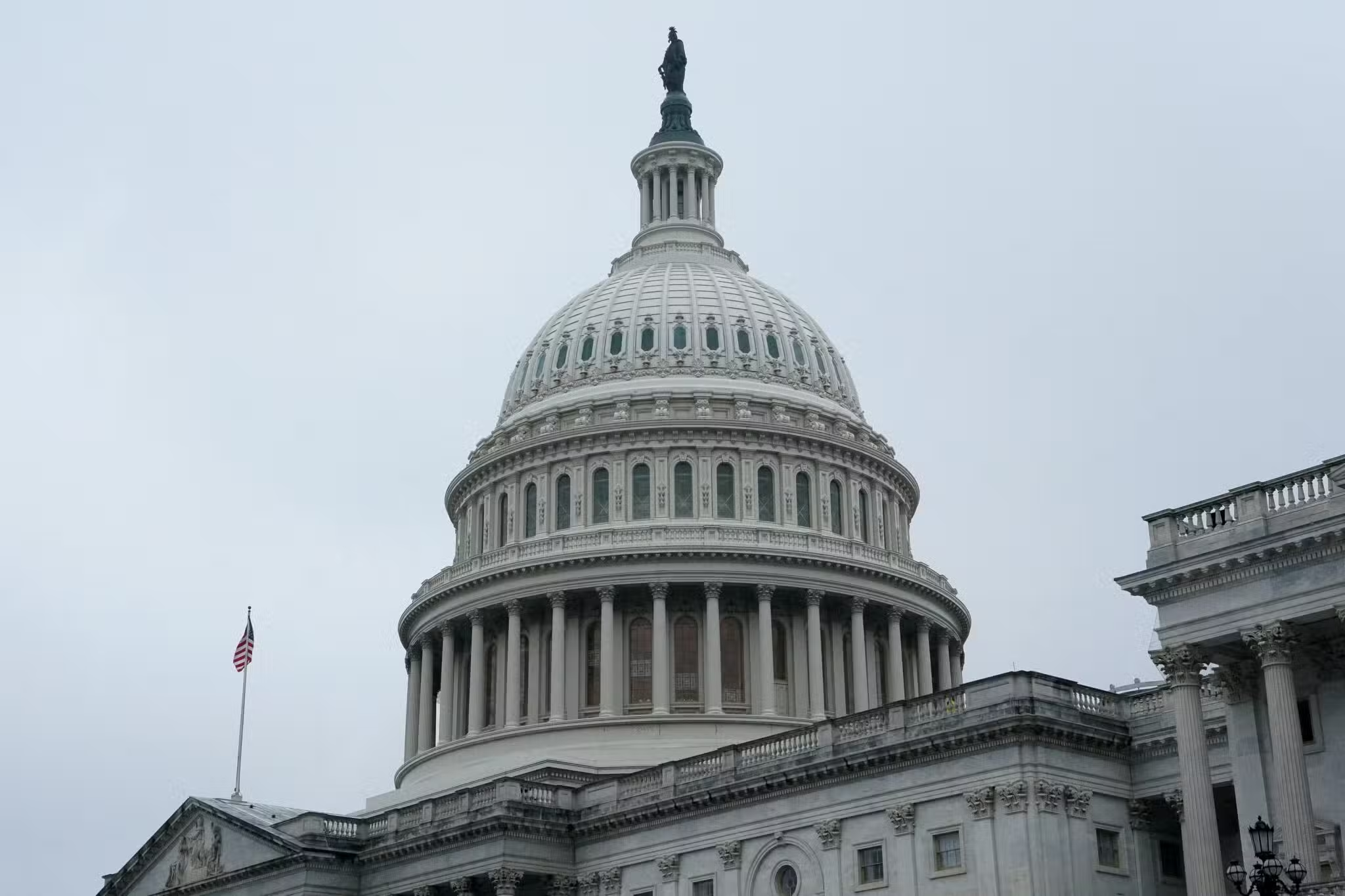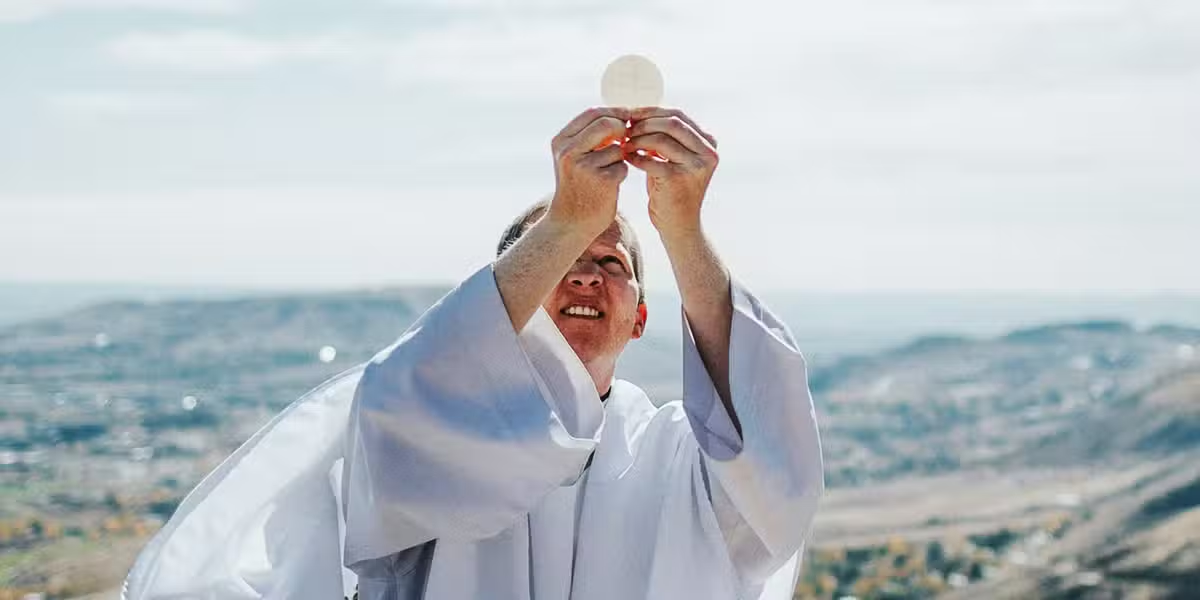A group of Capuchin Franciscan friars in Boston is taking the idea of solidarity with the poor to a whole new level.
Capuchin Franciscan friars in Boston challenged themselves to reimagine what it means to be in solidarity with the poor. Taking to heart the example of St. Francis of Assisi and the words of Pope Francis in his encyclical “Fratelli Tutti,” they understand that to be true witnesses, they must do more than just care for the poor.
As Pope Francis said in his message for the 2022 World Day for the Poor: “Where the poor are concerned, it is not talk that matters. What matters is rolling up our sleeves and putting our faith into practice through direct involvement, one that cannot be delegated.”
Charity Is Not Enough
Pope Francis often uses examples from the life of St. Francis in his writings and reflections. In particular, he is drawn to the work of St. Francis around the poor and marginalized. For St. Francis, works of charity alone were not enough. St. Francis viewed the poor, sick, and marginalized not as people he should care for but as his brothers and sisters. Being in a relationship with them, how could he not do everything for them? Doing so transformed St. Francis.
As Father Augustine Thompson, Dominican historian, writes: “It was a dramatic personal orientation that brought forth spiritual fruit. As Francis showed mercy to these outcasts, he came to experience God’s own gift of mercy to himself. As he cleaned the lepers’ bodies, dressed their wounds, and treated them as human beings, not as refuse to be fled from in horror, his perceptions changed. What before was truly ugly and repulsive now caused him delight and joy, not only spiritually, but viscerally and physically. Francis’ aesthetic sense, so central to his personality, had been transformed, even inverted. The startled veteran sensed himself, by God’s grace and no power of his own, remade into a different man. Just as suddenly, the sins that had been tormenting him seemed to melt away, and Francis experienced a kind of spiritual rebirth and healing” (Francis of Assisi: A New Biography).
In “Fratelli Tutti,” Pope Francis says of St. Francis, “Wherever he went, he sowed seeds of peace and walked alongside the poor, the abandoned, the infirm and the outcast, the least of his brothers and sisters.”
Step Out of the Comfort Zone
The friars at the San Lorenzo Capuchin Friary in the Jamaica Plains area of Boston live in a poor section of the city. This means they were certainly engaged in activities centered around caring for the poor and were connected to many social service agencies in Boston. But something was missing. Those they served were, for the most part, faceless and nameless people. They were invisible street people. The friars knew they had to step out of their comfort zone and follow in the footsteps of St. Francis by finding a way to be one with their brothers and sisters on the street.
Before designing and developing a program based on what they thought was best for the poor and marginalized, the friars decided to simply spend time and listen. Brother Paul Fesefeldt, drawing from his experience of living 10 years at a Catholic Worker house, spent six months researching and listening. He went to different areas in Boston where the homeless would congregate, and he listened. What Brother Fesefeldt and the other friars learned was that, while providing food was nice, there were several soup kitchens and food pantries where the homeless could go to be fed. What they really were looking for was to be welcomed, to be seen. The friars decided the best way they could serve these people was to set up what they described as a spiritual field hospital. So, they started the Capuchin Mobile Ministries.
The friars understand that they are being welcomed into the living space of the homeless and marginalized. Their van opens in the back with a foldout table, which provides a space for hospitality. Members of local churches take turns making sandwiches. The friars go out three times a week. They travel to eight different spots around Boston, park the van, set up the table, and hang out. A couple of the friars walk around the area, letting people know they are there.
During people’s first visit to the van, a friar asks their name and writes it in a notebook. Each time thereafter, the friars greet them by name. The friars take time to listen to their stories and build a relationship with the once-
invisible, nameless, and marginalized people. The mission is not to just feed the homeless but to humanize them. They talk about it as solidarity at a whole different level.
The Power of Being Seen
The friars give a bracelet with their phone number to all the guests who stop by. One day they received a phone call from the Boston Police. A homeless man was found dead, and the only thing identifying him was the bracelet. The police asked if the friars could identify the man, whom they only knew as Michael. A few days later, someone posted a poem about Michael on the community board.
The friars got together with some other faith leaders in the area and had an impromptu memorial street service for Michael. A local media outlet heard and told the story about Michael. Later, the friars got a phone call from a relative of Michael who had heard the story. Relatives had lost touch with Michael a year or so earlier. While they were very saddened over his death, they were so comforted and grateful to find out about the memorial service and hear that, while Michael was very troubled, he had friends among the friars who cared for him.
St. Francis is often credited with telling people to preach the Gospel, using words when necessary. The Capuchin friars and their mobile van are the perfect example of how St. Francis proclaimed God’s word.








